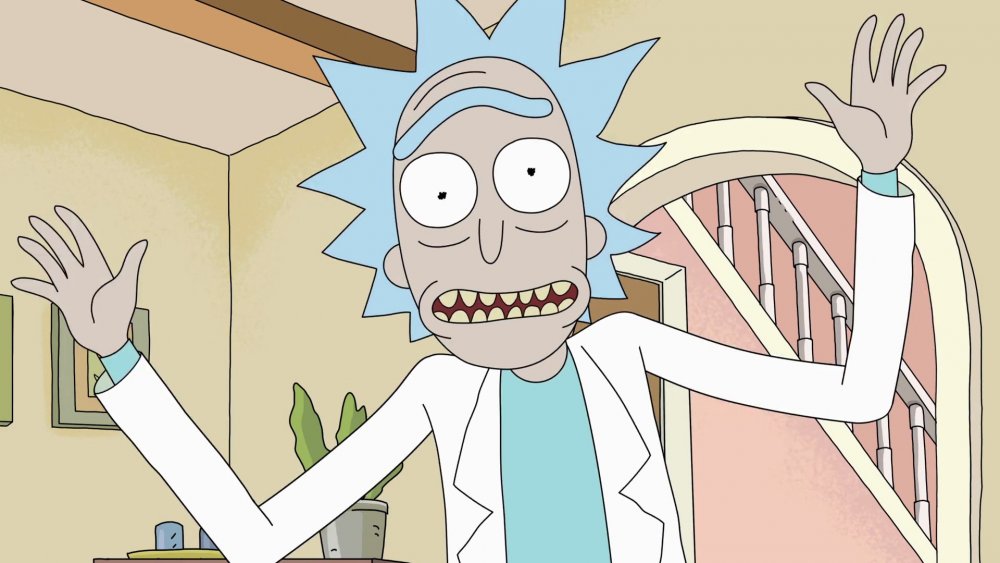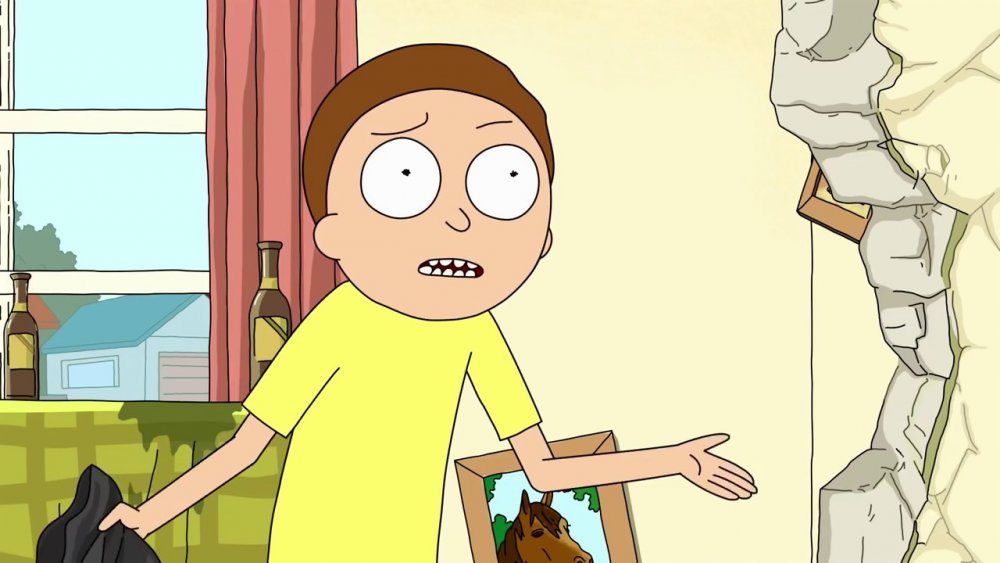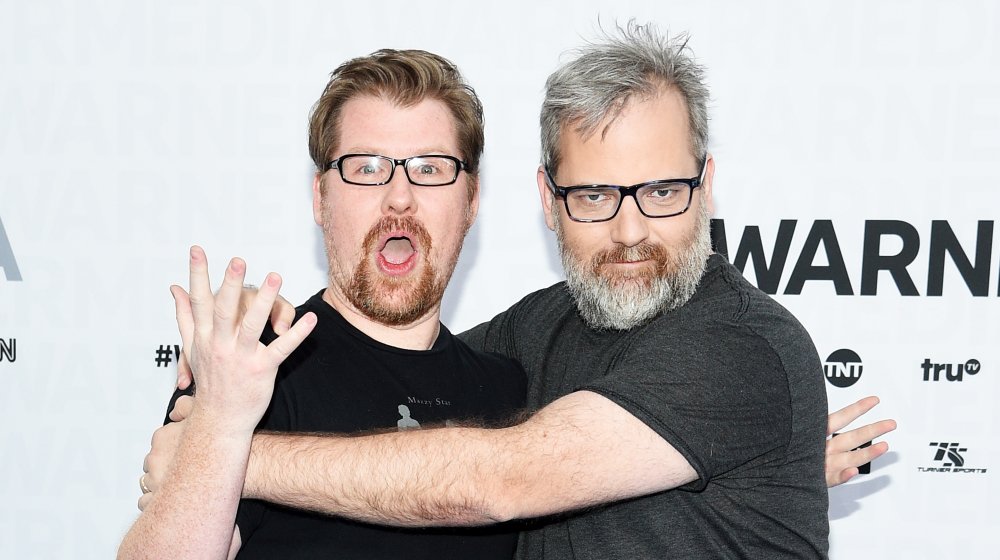The Truth Behind Rick's Catchphrase On Rick And Morty
When Rick and Morty creators Justin Roiland and Dan Harmon gave their acerbic scientist character a nonsense catchphrase in the first season — "Wubba lubba dub dub!" — they accidentally created a monster.
Rick initially says it to punctuate a joke or to celebrate an especially excellent plan (or a fart) going off. But the phrase/noise takes a darker turn later in the season, when Birdperson (a.k.a. Phoenixperson) tells Morty that in the language of his (bird)people, Rick is actually saying, "I am in great pain, please help me." Morty rejects the translation (which is not the absolute worst thing Morty has ever done on Rick and Morty). However, Google — which knows everything — confirms it: type "wubba lubba dub dub" into the search engine to see for yourself. Just one of the facts about Rick and Morty you may not know, no matter how many times you've watched the series.
Roiland — who also voices both of the title characters — and Harmon weren't entirely kidding around when they gave Rick's "stupid nonsense catchphrase" a dark twist. Here's the truth behind "wubba lubba dub dub," including why you probably shouldn't shout it at the creators anymore.
Rick's catchphrase wasn't supposed to become a catchphrase
Roiland and Harmon were not trying to unleash a new, inane catchphrase on the world when they came up with "wubba lubba dub dub." They were actually trying to mock the very thing they accidentally created. The first time Rick uses the phrase, he even calls out comedian and TV presenter Arsenio Hall, who was famous for having his audiences whoop on his self-titled talk show in the late '80s and early '90s.
Not only did the gag backfire spectacularly, but the whole scene was actually written differently than the final animated product. In an interview published by Den of Geek, Roiland explained that the character was originally supposed to perform a famous move perfected by the Three Stooges, which he described as "the Curly spin." Anyone born after the '70s might know this better as the Homer Simpson spin — lying on the ground and running in a circle, while making whooping noises.
When it came to recording time, Roiland didn't quite get that visual from reading the script, so he improvised a few variations on the whooping sound. "Then it became the Arsenio joke," Roiland told Den of Geek, doing an impression of The Arsenio Hall Show audiences whooping for the comedian. Which, in reality, sounds nothing like Rick's now-famous noise, but that's sort of the point. The offhand phrase stuck, and like many catchphrases it began wreaking havoc on the world at large.
The Rick and Morty creators are sick of Rick's catchphrase
One of the main problems with catchphrases is that they get repeated constantly, out of context, to the point that they're no longer funny. That's exactly why Harmon and Roiland were so keen to parody them. Ironically, they quickly got tired of their own creation. Roiland explained to Den of Geek, "As the season continued... all of us were saying, 'God I hope that doesn't catch on, that is the dumbest thing in the world.'"
Unfortunately, it did. In an interview with Entertainment Weekly, Roiland described the catchphrase as the reference from the series that he's most sick of hearing. "Only because we were making fun of the idea of stupid catchphrases," he says. It probably didn't help that he was the one who had to say it over and over.
However, Roiland is very clear that he likes that fans like it, and he's not out to snatch away his own catchphrase from people who get a kick from it. "I hate to s**t on anything because I don't want to bum anybody out. I don't want somebody to be like, 'I love that!' And then for them to read that Justin hates it. I don't hate it," Roiland clarified to EW. So by all means print the catchphrase on every t-shirt you own and shout it when you make a joke — but if you see Roiland and Harmon, consider just saying thanks.


